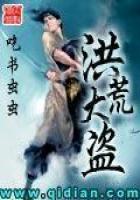"Well, then I cal'late it must be. But if Ed Farmer had lived all these years and had had his tintype took he wouldn't get one to favor him more than that does, I bet you. My, it give me a start, comin' onto me so unexpected!"
"But who is Ed Farmer?" asked Mary. The name had meant nothing to her so far. And yet, even as she spoke she remembered. Her expression changed.
"Do you mean--" she cried, eagerly. "Why, Isaiah, do you mean the man in that old photograph I found in the garret ever and ever so long ago? The one you told me was a--a blackguard?"
Isaiah, still staring at Mr. Smith's likeness, answered emphatically.
"That's the one," he said. "That's the one I meant. My, this feller does look like him, or the way I cal'late he would look if he lived as long as this!"
"Is he dead, then?"
"I don't know. We don't any of us know around here. I ain't laid eyes on him since the day afore it happened. I remember just as well as if 'twas yesterday. He come out of the office onto the wharf where I was workin' and he says to me, 'Isaiah,' he says, knockin' on the head of a barrel with his hand--the right hand 'twas, the one that had the bent finger; he got it smashed under a hogshead of salt one time and it never came straight again--
'Isaiah,' says he, 'it's a nice day, ain't it.' And I answered up prompt--I liked him fust-rate; everybody liked him them days--'Yes, sir,' I says, 'this is a good enough day to go see your best girl in.' I never meant nothin' by it, you understand, just a sayin' 'twas, but it seemed to give him a kind of start. He looked at me hard. 'Did anyone tell you where I was goin'?' says he, sharp.
'Why, no,' says I. 'Why should they?' He didn't answer, just kept on starin' at me. Then he laughed and walked away. I didn't know where he was goin' then, but I know now, darn him! And the next day he went--for good."
He stopped speaking. Mary waited a moment and then asked, quietly:
"Went where, Isaiah? Where did he go?"
Isaiah, who was standing, the photograph still in his hand, started, turned and looked at her.
"What's that?" he asked.
"I say, where did this Mr. Farmer go?"
"Eh? Oh, I don't know. He went away, that's all. Don't ask me any more questions. I've been talkin' too much, anyhow, I cal'late.
Cap'n Shad would skin me alive if he knew I'd said as much as I have. Say, Mary-'Gusta, don't you say nothin' to either him or Zoeth, will you? You see--it's--it's a kind of little secret we have amongst us and--and nobody else is in on it. 'Twas this plaguey tintype got me to talkin'. No wonder neither! I never see such a look on two folks. I--there, there! Good night, Mary-
'Gusta, good night."
He tossed the photograph on the bureau and hurried out of the room.
Mary called after him, but he would neither stop nor answer.
After he had gone Mary took up the photograph, seated herself once more in the chair, and studied the picture for a long time. Then she rose and, lamp in hand, left the room, tiptoed along the hall past the door of Captain Shadrach's room, and up the narrow stairs to the attic, her old playground.
Her playthings were there still, arranged in her customary orderly fashion along the walls. Rose and Rosette and Minnehaha and the other dolls were seated in their chairs or the doll carriage or with their backs against Shadrach's old sea chest. She had never put them away out of sight. Somehow it seemed more like home to her, the knowledge that though she would never play with them again, they were there waiting for her in their old places. While she was away at school they had been covered from the dust by a cloth, but now the cloth had been taken away and she herself dusted them every other morning before going up to the store. As Shadrach said, no one but Mary-'Gusta would ever have thought of doing such a thing.
She did, because she WAS Mary-'Gusta.
However, the dolls did not interest her now. She tiptoed across the garret floor, taking great care to avoid the boards which creaked most, and lifted the lid of the old trunk which she had first opened on that Saturday afternoon nearly ten years before. She found the pocket on the under side of the lid, opened it and inserted her hand. Yes, the photograph of Hall and Company was still there, she could feel the edge of it with her fingers.
She took it out, and closed the pocket and then the trunk, and tiptoed down the stairs and to her room again. She closed the door, locked it--something she had never done in her life before--and placing the photograph she had taken from the trunk beside that sent her by Crawford, sat down to compare them.
And as she looked at the two photographs her wonder at Isaiah's odd behavior ceased. It was not strange that when he saw Mr. Edwin Smith's likeness he was astonished; it was not remarkable that he could scarcely be convinced the photograph was not that of the mysterious Ed Farmer. For here in the old, yellow photograph of the firm of "Hall and Company, Wholesale Fish Dealers," was Edgar S.
Farmer, and here in the photograph sent her by Crawford was Edwin Smith. And save that Edgar S. Farmer was a young man and Edwin Smith a man in the middle sixties, they were almost identical in appearance. Each time she had seen Mr. Smith's photograph she had felt certain she must have met the original. Here was the reason--this man in the other photograph. The only difference was the difference of age. Edwin Smith had a nose like Edgar Farmer's, and a chin like his and eyes like his. And Isaiah had just said that Edgar Farmer had a crooked finger on his right hand caused by an accident with a hogshead of salt. Mary remembered well something Crawford had told her, that his father had a finger on the right hand which had been hurt in a mine years before he, Crawford, was born.
It could not be, of course--it could not be--and yet-- Oh, WHAT did it mean?















